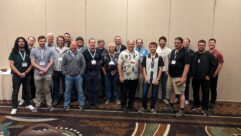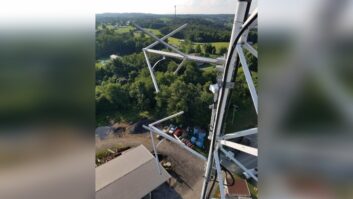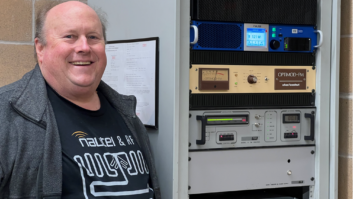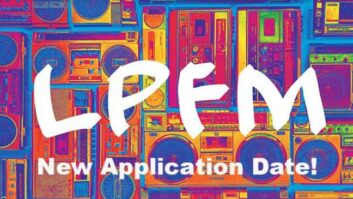LPFM/FM Translator Standoff Continues
Dec 1, 2010 1:00 AM, By Harry Martin
There has been no movement at the FCC in the on-going battle between, on one hand, LPFM interests, and, on the other, broadcasters seeking to protect their rights to FM translator facilities. At stake is whether the FCC will adopt a “cap of 10” applicable to still-pending applications for FM translators, thereby freeing spectrum for LPFM, and at the same time give LPFM applicants priority rights over long-pending FM translator applications.
FM translator application flood. This deadlock began to develop shortly after the FM translator window in 2003: In that window approximately 13,000 applications were filed, reportedly far beyond the FCC’s expectations or processing capabilities. Nevertheless, the Commission managed to process approximately 6,000 of the 13,000 applications, mostly “singletons,” by the end of 2007. This left 7,000 applications, most of which are mutually exclusive with others and thus will have to be processed through comparative “points” hearings. Of these, approximately 2,000 are attributable to two applicants.
LPFM interests have a stake in this matter since they use the same channels as FM translators. Thus the Commission is reluctant to open an LPFM application window with 7,000 translator applications still pending. Under current rules the pending translator proposals have cut-off rights that would preclude later-filed mutually exclusive LPFM applications.
Cap of 10 debated. A cap of 10 applications was proposed by the FCC in December 2007, in an effort to break the log jam. Under this proposal, applicants with more than 10 translator applications still pending would have to select their favorite 10 and the remainder would be dismissed. With two applicants accountable for 2,000 of the still-pending applications, this approach would presumably have trimmed the backlog by more than half.
A number of broadcasters with more than 10 pending applications sought reconsideration of the Commission’s 10-application cap. By April 2008, the Commission suspended the cap to afford it time to review the petitions for reconsideration. Nothing of significance has happened since then except the FCC’s decision to allow AM stations to broadcast over FM translators. This rule change has heightened interest in FM translators, but has not produced the needed prioritization between LPFM and translators — or an application cap.
Compromises proposed. This year, Educational Media Foundation on the translator side and Prometheus Radio Project on behalf of LPFM interests, submitted a joint proposal to resolve the conflict. They suggested that the FCC scrap the cap of 10 and simply hold all pending FM translator applications in abeyance while opening an LPFM filing window. Those LPFM applications that conflicted with pending FM translator applications would be given priority, and the conflicting FM translator applications would be dismissed. This presumably would have left EMF and others with far more than 10 opportunities.
After objections to this plan were received from NPR and the NAB, among others, EMF and Prometheus supplemented their plan. The supplement provided that parties with fewer than 10 translator applications could pick one of their applications for grant, thereby getting at least one new translator, and then the Commission would open an LPFM window that included an LPFM priority vis-à-vis pending translator applications.
A coalition of commercial broadcasters opposed this modified proposal, and urged the FCC to proceed with processing of all the pending applications after first opening a settlement window among translator applicants. Such a settlement window, it was urged, would considerably reduce the number of pending applications.
Still no movement. There is no indication from the FCC as to when it will proceed or whether any of the compromise proposals will be favored. While FM translator applicants have been awaiting action since March 2003, 1,100 full-power NCE FM applications, filed four years later in October 2007, have been granted. And LPFM applicants have been waiting for their first window in nearly 10 years, a window that will not be opened until the FCC reaches a decision regarding how many FM translator applications will be processed, under what priority scheme.
Dateline
For noncommercial radio stations in Kansas, Nebraska and Oklahoma their biennial ownership report deadline is Feb. 1.
Feb. 1 is the deadline for radio stations licensed in the following locations to place their Annual EEO Reports in their public files and on their websites: Arkansas, Kansas, Louisiana, Mississippi, Nebraska, New Jersey, New York and Oklahoma.
The radio station license renewal cycle begins again in 2011, with the first batch of renewals due on June 1, 2011, for stations in D.C., Maryland, Virginia and West Virginia.
Martin is a member of Fletcher, Heald & Hildreth, PLC, Arlington, Virginia. E-mail: [email protected]
December 2010
A look at future mic technology; station visits to Ponca City, OK, and Carthage, MO; ideas on starting a contract engineering business; and Field Reports on the Yamaha W24 and Dartware Intermapper….












